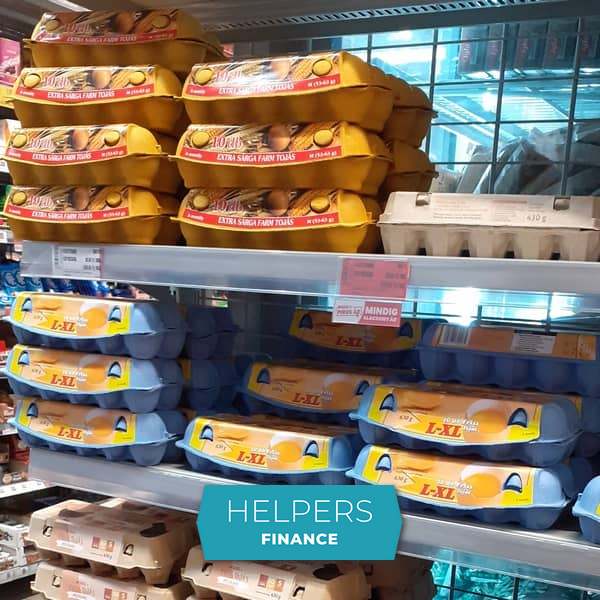
Price margin cap to combat inflation in Hungary in 2025
The Hungarian government decided to combat inflation by introducing a price margin cap on basic groceries. They have issued a list, and retailers selling items in these categories cannot increase their margin on such items until the cap is in place.
The Hungarian government decided to combat inflation by introducing a price margin cap on basic groceries. They have issued a list, and retailers selling items in these categories cannot increase their margin on such items until the cap is in place.
Last updated on June 3, 2025.
Combating inflation
Last week, the Hungarian Central Statistical Office (KSH) published its data on inflation in February 2025. While Hungary seems to be coming out of the recession, inflation is not yet slowing down. Compared to the February 2024 figures, there was a 5.6% increase to consumer prices, including a 7.1% increase to the prices of food.
Since the government sees the profiteering of retail stores as the main reason, it announced a price margin cap to limit how much the price of certain items can be increased between the wholesale and the shelf price. The price margin cap comes into force on March 17, 2025, and will remain in force at least until May 31. During this time, retailers cannot increase the margin they have been applying to certain groceries (see a list of 30 categories below). The regulation applies to both physical and online stores.
The new regulation is only relevant to retailers whose yearly revenue was above HUF 1 billion in 2023. As such, it does not concern small businesses – that operate many small convenience stores or “mom-and-pop stores” in Hungary.
UPDATE: The price margin cap has been extended. Now it is supposed to remain in place until August 31, 2025.
List of the groceries concerned
The list includes groceries that are considered basic necessities by the government, such as meat, dairy products, eggs, or flour.
- Chicken breast fillet (Csirkemellfilé)
- Chicken legs (Csirkecomb)
- Chicken back (Csirkefarhát)
- Chicken wings (Csirkeszárny)
- Whole chicken (Egész csirke)
- Turkey breast fillet (Pulykamellfilé)
- Pork legs (Sertéscomb)
- Pork loin (Sertéskaraj)
- Pork ribs (Sertésoldalas)
- Pork shoulder tops (Sertéstarja)
- Bologna cold cuts (Párizsi)
- Eggs (Tojás)
- UHT milk, 1.5% (UHT tej, 1,5%)
- UHT milk, 2.8% (UHT tej, 2,8%)
- ESL milk, 1.5% (ESL tej, 1,5%)
- ESL milk, 2.8% (ESL tej, 2,8%)
- Sour cream (Tejföl)
- Trappist cheese (Trappista)
- Cow’s cottage cheese (Tehéntúró)
- Plain yogurt (Natúr joghurt)
- Fruit yogurt (Gyümölcs joghurt)
- Butter (Vaj)
- Lard (Sertészsír)
- Margarine (Margarin)
- Cooking oil made of sunflower or rape seed (Étolaj)
- Fine flour (BL 55, Finomliszt)
- Pastry flour (BFF 55, Rétesliszt)
- Granulated sugar (Kristálycukor)
- Potatoes, excluding new potatoes (Késői burgonya)
- Garlic (Fokhagyma)
At most 10% margin on groceries
While the price margin cap remains in place, retailers cannot increase the margin they apply to the prices of the above listed types of groceries. The baseline is the average margin applied throughout January 2025.
- If the previous margin was above 10%, the margin must be decreased to 10%.
- If the previous margin was below 10%, it should be maintained.
- If the retailer was not selling an item in January 2025, either a 10% margin or the margin they applied during the last month they were selling it should be applied now; whichever is lower.
In case of store brands, the production cost should be considered instead of the wholesale price.
Keeping the stores stocked
To avoid a situation where retailers could circumvent the regulation by simply not selling specific items anymore, the law specifies that if the retailer was selling an item on March 16, 2025 (the day before the regulation came into force), they cannot decide not to sell it anymore while the price margin cap is in place. The item in question must be stocked in line with how much of it was in stock in average throughout 2024. Moreover, if the store offers a store brand counterpart, the ratio of the store brand counterpart cannot be increased.
Retailers will be required to put up signs in the stores that announce the savings customers can achieve due to these regulations. You can find a sample here.
If the retailer fails to comply with these regulations, they can be fined (between HUF 500,000 and 5 million), or even closed down for a limited time (1 day – half a year). However, if the retailer can prove that the failure was due to reasons out of their power, the penalties may be waived.
Effects on Hungarian economy
The government expects a decrease of 1 percentage point in inflation, and of 2 percentage points in the inflation of grocery prices. Experts, however, are not so optimistic, and expect the prices of other items to increase in order to recover the losses caused by the price margin cap. If that happens, the effects on inflation will be quite limited.
About Helpers Finance
Helpers Finance offers accounting and bookkeeping services to small and medium-sized businesses, focusing on working with foreign owners. Whether you need help with accounting, payroll administration, HR support, or advisory related to taxation, feel free to contact our team. We would be happy to assist.
Contact
Get in touch today
Monday - Friday
9am - 5pm CET
Helpers Finance Kft.
Budapart Gate
Dombóvári út 27
Budapest 1117, Hungary
If you’re visiting us, please use entrance A and come to the 2nd floor.



